Member-only content is available on this page. Please log in to view this content.

Search
845 item(s) found
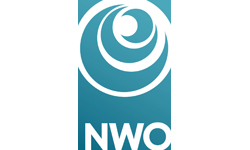
COVID-19 Programme (Focus Area 3)
This Dutch Research Council (NWO) and ZonMw programme aims to contribute to controlling the consequences of the coronavirus (COVID-19) in the short and long term, to generate new knowledge about prevention, treatment and recovery from this infectious disease, and to investigate the broader societal issues concerning this pandemic.
Focus area 3: Societal dynamics
This focus area concerns broad, societal issues in which several scientific disciplines are involved: What are the societal consequences of the coronavirus crisis? Which social and economic problems have been exposed or have arisen as a result of this? But also: which positive effects does the crisis have? Which restart scenarios exist after a shorter or longer period of economic and widespread societal disruption? What can we learn from the crisis for the future?
Budget: €6,500,000
Eligibility: Research organisations and other entities registered in the Netherlands, such as UMCs, nonacademic hospitals, universities, universities of applied sciences, “practoraten” (knowledge platforms in vocational (mbo) education), care organisations, research institutes, consultancy bureaus, umbrella organisations, professional organisations and patient organisations.

National Research Programme 78: COVID-19
This call is launched by the Swiss National Science Foundation to advance the understanding of the coronavirus disease 2019 (Covid-19), the clinical management and public health response, the development of vaccines, and therapeutics and diagnostics. It aims to capitalise and build on existing national research competencies, to channel and bundle them into more extensive projects, and to foster multidisciplinary collaborations and sharing of data and results between scientists, health professionals and health authorities. The goal is to support innovative projects that can achieve results as soon as possible and to submit appropriate recommendations and solutions to combat the current Covid-19 crisis in Switzerland.
Budget: CHF 20 million
Eligibility: See details on the call page.
International collaboration: This call is open to projects involving researchers based in Switzerland and Luxembourg, in accordance with the lead agency agreement between SNSF and FNR. See the call page for more details.

Science for professional practice
Organisations such as care organisations, companies, schools, local governments and public transport companies face practical problems as a consequence of the coronavirus crisis and the measures taken against this. Combining knowledge from science and professional practice can give rise to solutions that within a short space of time can help to answer practical questions and help to alleviate problems. This call for proposals has therefore been published within the COVID-19 Programme. The grant is intended for brief (action) research realised by collaborations between scientific organisations (researchers) and businesses, public organisations, administrative bodies, interest groups or (local) governments. The scientific organisation submits the application on behalf of the collaboration. Research questions that relate to one or more of the three focus areas of the COVID-19 Programme are possible. The research should be aimed at generating a clear and directly applicable solution for coronavirus-related challenges in everyday practice.
Budget: €1,350,000
Eligibility: Scientific organisations (universities, universities of applied sciences, research and knowledge institutions), UMCs in a collaboration with companies, local governments, schools, public organisations, (care) institutions, sector and professional associations, sports clubs, patient organisations, client organisations located in the Netherlands, et cetera.

Fast-track call for 6-month co-funding
The Luxembourgish research community, including FNR, has created a COVID-19 Task Force in order to coordinate response activities. As a part of the Task Force’s activities, the FNR is launching a rapid call to provide initial (co-)funding for supporting both short-term projects and starting phases of long-term projects that will address the current and future challenges of COVID-19.
Research submitted to this call is open to all research domains and disciplines and must be aligned with the WHO’s Coordinated Global Research Roadmap: 2019 Novel Coronavirus (March 2020 version). Of particular interest is also the development and use of Text and Data Mining techniques that can help to answer high-priority scientific questions related to COVID-19, such as those presented in the COVID-19 Open Research Dataset Challenge (CORD-19).
Eligibility: The call is open to all PIs fulfilling the FNR requirements for PIs, and is also open to collaborations with companies – please consult Luxinnovation for more info on the potential support of companies.
Budget: € 2,640,000

Call for research into COVID-19 vaccines and pharmaceutical development
This special call by the Academy of Finland (AKA) is aimed at preventing adverse health effects of the COVID-19 pandemic and/or at supporting the treatment of COVID-19 cases. The pharmaceutical research may cover both the development of new medicines and the study of the efficacy of medicines authorised for other uses in the treatment of COVID-19. Due to the urgency of the objective, the funding is primarily targeted at projects in which research is already under way.
Budget: €10,000,000
Eligibility: In addition to a doctoral degree, the principal investigator (PI) of the proposed project must also have other significant scientific merits. Usually the PI is a researcher at the professor or docent (adjunct professor) level. The funding can be applied for by individual research teams or consortia composed of two or several research teams.
Results: See an overview of funded projects on the website of AKA.

Second special call for COVID-19 research projects
The measures that were and are still being taken to contain the COVID-19 pandemic have a great impact on people, families, businesses and, by extension, society as a whole. In order to anticipate and limit the consequences of the pandemic, research and new knowledge are essential. With the aim of meeting this need, the FWO organises a second call for COVID-19 related project proposals focusing exclusively on academic research that requires short-term funding. The short time span and succinct application process reflects the urgent and temporary character of this research. Even though basic research is involved, the results of the proposed research should be conducive to supporting policy and society in coping more effectively with the consequences of the pandemic.
Budget: €2,500,000
Eligibility: Proposals must be made by a consortium (i.e. two or more eligible institutions) to increase their likelihood of impact. See FWO website for more eligibility details.
Results: See here an overview of funded projects .
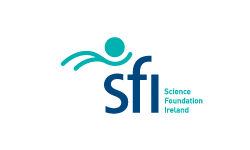
COVID-19 Rapid Response (Phase 2)
The Science Foundation Ireland, Enterprise Ireland, IDA Ireland rapid response call is an agile and adaptive initiative to support research in a number of thematic areas focused on advancing our knowledge of the virus and its impact on our health, and develop solutions that contribute to economic and societal recovery.
Eligibility: Under this call, applications must be led by a researcher from an SFI Eligible Research Body (Higher Education Institution). Applicants must be capable of demonstrating the required technical skills, resources and network to complete the proposed project.
Budget: € 9,300,000
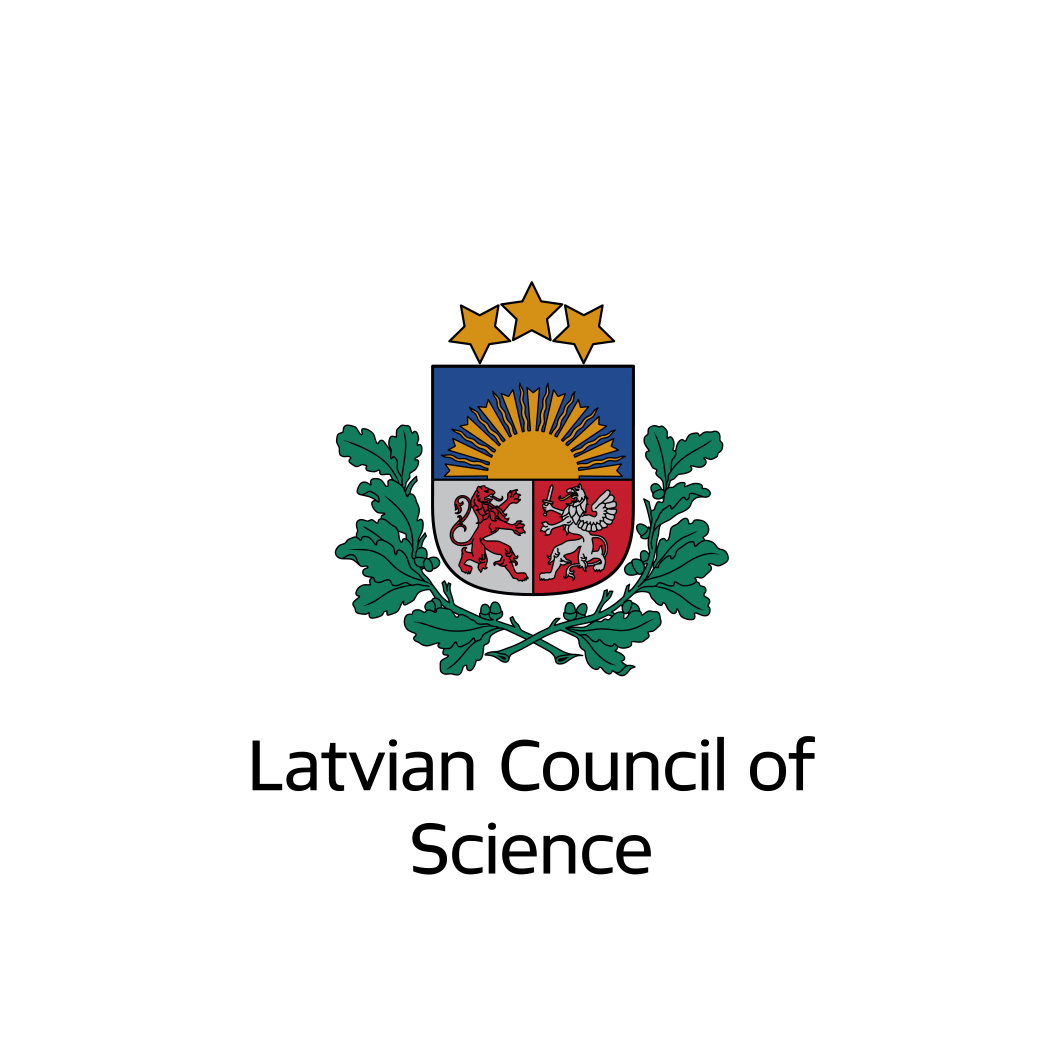
For Mitigation of Consequences of Covid-19
The overarching goal of implementing this state research programme is to limit the spread of Covid-19 and to protect the population in order to urgently restore economic activity and socially active daily life through innovative scientific projects.
Budget: €5,000,000
Eligibility: Scientific institutions of the Republic of Latvia that are registered in the Register of Scientific Institutions and comply with the definition of a research organization were eligible to hand in proposals. A state institution, the performance of which is determined by a foreign legal act, by the regulations, or statutes, may also participate as a co- partner. The project applicant must involve at least 2 project partners in implementing the project.
Results: See an overview of funded projects on the website of LZP.

2020 Individual Scientist Project Proposals for Fundamental and Applied Research
The overarching goal of implementing this project is to contribute to strengthening the excellence of universities and research institutes, promote the launching of the Reform of the Academic Career Model in Latvia, as well as to reduce the negative economic impact of the Covid-19 crisis on the national economy.
Budget: €11,201,343
Eligibility: Scientific institutions of the Republic of Latvia, which are registered in the Register of Scientific Institutions and which comply with the definition of a research organization, were eligible to hand in proposals.

Support for research and development aimed at managing the coronavirus pandemic and its effects for the period 2020-2021
The aim of the call is to stimulate R&D aimed at overcoming the COVID 19 pandemic and minimizing its impact on society, whether now or after the end of the pandemic, by supporting R&D or transferring R&D results from R&D organizations to social and economic practice.
Budget: € 8,211,355

National Research Programme 80: COVID-19 in Society
ACTIVE CALL
The National Research Programme "COVID-19 in Society" (NRP 80) aims to help manage current and future pandemics by analysing social processes during the pandemic from a social science perspective. NRP 80 thus complements NRP 78 "COVID-19", launched in 2020 to investigate primarily the biomedical and clinical aspects, as well as the special call for research on coronaviruses launched by the SNSF
Budget: CHF 14 million
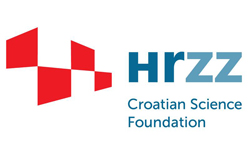
IP-CORONA-2020-12
The objective of the Call is to finance fundamental and applied scientific research that creates new and improves existing knowledge about the COVID-19 pandemic and enhancing society’s resilience to emergency situations, with an emphasis on the protection of health of the population, sustainable economic recovery and growth and strengthening high-quality and inclusive educational system in the Republic of Croatia.
Budget: € 1,350,000
Eligibility: A scientist employed at a public university, public research institute in the Republic of Croatia and at other legal research entities as well as full members of the Croatian Academy of Sciences and Arts.
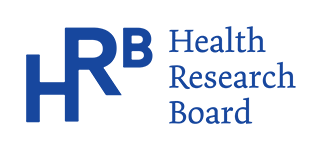
REMAP-CAP supplemental funding
Supplemental funding for the HRB-Clinical Trial Network in Critical Care to support their participation in an international clinical trial of repurposed therapeutic interventions in response to COVID-19.
Budget: € 400,000

WHO-SOLIDARITY Trial
ACTIVE CALL
The Department of Health (National Sponsors) and HRB Clinical Research Facilities worked together to participate in the WHO Solidarity Trial. It is one of the largest international randomized trials for COVID-19 treatments, enrolling almost 12 000 patients in 500 hospital sites in over 30 countries. The Solidarity Trial is evaluating the effect of drugs on 3 important outcomes in COVID-19 patients: mortality, need for assisted ventilation and duration of hospital stay.
Budget: € 1,600,000
Eligibility: skilled clinical trialists.

Intellectual Disability Supplement to the Irish Longitudinal Study on Ageing
Supplemental funding to conduct a carry-on survey of the IDS-TILDA cohort with intellectual disabilities on the impact of Covid-19 on their lives. Resulted in a report to the Department of Health and Health Services Executive.
Budget: €60,200

Research Collaborative in Quality and Patient Safety COVID-19
Support for research projects with knowledge users and academic researchers collaborating to focus on QPS research questions that are determined by the documented needs of the Irish health care system. 2020 call focused on Covid impacts.
Budget: € 500,000
Eligibility: Applications should be made on behalf of a team which is made up of researchers and knowledge users. The applicant team should designate a Lead Applicant from the research team and the knowledge user team.

Special support to research projects on the impact of the COVID-19 pandemic on hate crimes and violence and hate speech
Funding of initiatives that allow the production and dissemination of knowledge and research actions on crimes of hate incitement, violence and hate speech in the aftermath of the pandemic.
Budget: € 200,000
Eligibility: Higher education organisations and their institutes, State Laboratories and other public research institutions, Scientific societies or non-profit scientific associations, Public or private non-profit institutions.

COVID-19 Focus Funding: Exploiting Spatial Data as a Basis for Decision-making as Part of Pandemic Control
With its COVID-19 Focus Funding, the German Research Foundation (DFG) has developed a new funding opportunity designed to enable scientists to address especially urgent research questions requiring rapid answers. The projects can be used as preparation for subsequent larger-scale projects.
Funding will be provided for the development and demonstration of innovative and creative approaches to data evaluation for a detailed spatio-temporal analysis of infection events. The aim should be, for example, to establish the basis for early detection of outbreaks (also on a local scale) or evaluate prevention and containment measures. Projects can either use innovative approaches to analyse pandemic events to date or set out to develop monitoring systems. In both cases, the use of various official, commercial or freely accessible data sources is conceivable, including mobile phone data, social media data, data from health authorities, behavioural and survey data etc.

COVID-19 Focus Funding: Education and Corona – The Impact of the Coronavirus Pandemic on Educational Processes in the Life Course
With its COVID-19 Focus Funding, the German Research Foundation (DFG) has developed a new funding opportunity designed to enable scientists to address especially urgent research questions requiring rapid answers. The projects can be used as preparation for subsequent larger-scale projects.
The focus of the call is to conduct a secondary analytical investigation of educational processes in the life course and how these educational processes are organised. The aim is to analyse pandemic-related influences on education and look at the implications in terms of future developments (e.g. social inequality).

COVID-19 Focus Funding: Aerosol Particles and their Distribution
With its COVID-19 Focus Funding, the German Research Foundation (DFG) has developed a new funding opportunity designed to enable scientists to address especially urgent research questions requiring rapid answers. The projects can be used as preparation for subsequent larger-scale projects.
Funding under this call is available for projects dedicated to answering open and pressing questions on the formation of aerosol particles during breathing, speaking, coughing, sneezing, as well as their evaporation kinetics and spreading dynamics (turbulent mixing) in rooms. Furthermore, the call intends to address the efficient removal of aerosol particles from indoor air, the infectiosity of virus-transmitting aerosols and the inactivation of viruses in aerosols via multiphysics approaches (radiation, charging, temperature, etc.) as well as the transport and deposition of aerosol particles in the airways.

COVID-19 Focus Funding: Impacts of the Coronavirus Pandemic in the Global South: Health Systems and Society
With its COVID-19 Focus Funding, the German Research Foundation (DFG) has developed a new funding opportunity designed to enable scientists to address especially urgent research questions requiring rapid answers. The projects can be used as preparation for subsequent larger-scale projects.
With this subject the DFG is highlighting the countries and regions which have been particularly affected by the impacts of the pandemic due to major social dis-parities, a relatively weak economy, a high degree of informality, a lack of social security and overbur-dened health systems.

COVID-19 Focus Funding: SARS-CoV-2 Sequencing Projects
With its COVID-19 Focus Funding, the German Research Foundation (DFG) has developed a new funding opportunity designed to enable scientists to address especially urgent research questions requiring rapid answers. The projects can be used as preparation for subsequent larger-scale projects.
In this call, the DFG is inviting proposals for SARS-CoV-2 sequencing projects. Funding under this call is available for projects in the context of SARS-CoV-2 infection whose objectives can only be achieved with the use of sequencing technology. These virus and host-specific sequencings are intended to contribute towards a better understanding of infectiousness and the spread of the infec-tion process as well as the genetic determinants of the immune response and host susceptibility, taking defined clinical patterns and vulnerable groups into consideration.
The focus is on quickly generating (sequencing) data, which are made publicly available.

COVID-19 Focus Funding: Measures to Prevent Infection in Social Settings and Population Groups
With its COVID-19 Focus Funding, the German Research Foundation (DFG) has developed a new funding opportunity designed to enable scientists to address especially urgent research questions requiring rapid answers. The projects can be used as preparation for subsequent larger-scale projects.
In this call under COVID-19 Focus Funding, the DFG is inviting proposals on measures to prevent infection in social settings and population groups. In the absence of widespread vaccination or effective medicines against COVID-19, protection against infection currently relies on implementing measures to change people’s behaviour and on changes to social norms. The acceptance, feasibility, implementation as well as the effectiveness of the measures vary among social settings and different group of populations. The impact of these barriers against becoming infected in social settings is unclear.

COVID-19 Focus Funding: Immunity, Host Susceptibility and Pathomechanisms of SARS-CoV-2 Infection
With its COVID-19 Focus Funding, the German Research Foundation (DFG) has developed a new funding opportunity designed to enable scientists to address especially urgent research questions requiring rapid answers. The projects can be used as preparation for subsequent larger-scale projects.
The purpose of this call is to address urgent, unresolved questions on immune response, host susceptibility and the infection mechanisms and pathomechanisms of SARS-CoV-2. Projects must be hypothesis driven and evidence based. To ensure that projects can get underway quickly, it must be clear in the proposal that the necessary methodological prerequisites are in place and any model systems or patient samples required are available at the start of the project. It must also be clear from the proposal how the newly acquired knowledge will contribute to a better understanding of the infection process and thus the concrete management of the current crisis. Applicants should also explain how the research results can lead to further research projects.

Applied Welfare Research 2021
The call will give researchers with ongoing project grants the opportunity to supplementary research related to the current pandemic. An additional grant aims at supplementary data collection, analyzes and syntheses with a focus on how the pandemic has affected the issues that the project focus on.
Budget: € 1,100,000
Eligibility: Eligibility based on previous financing within the programme.
